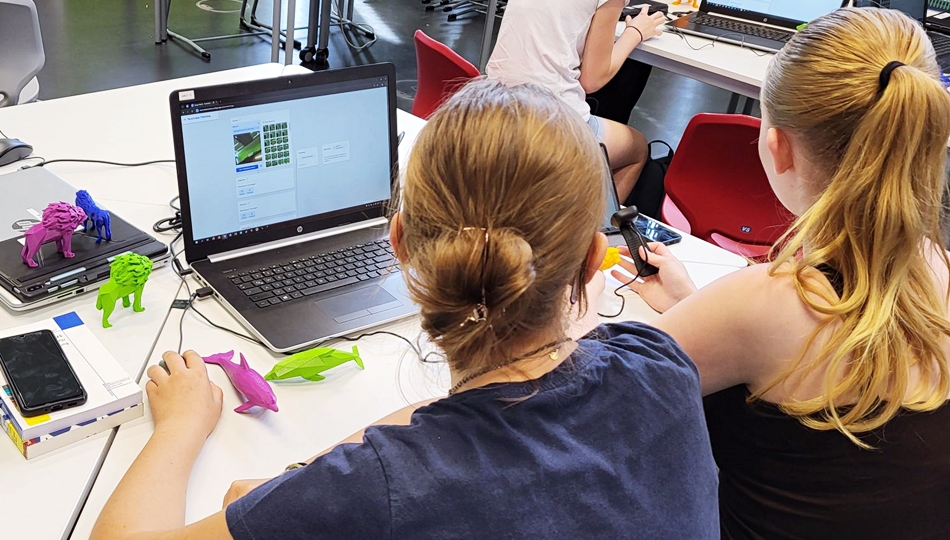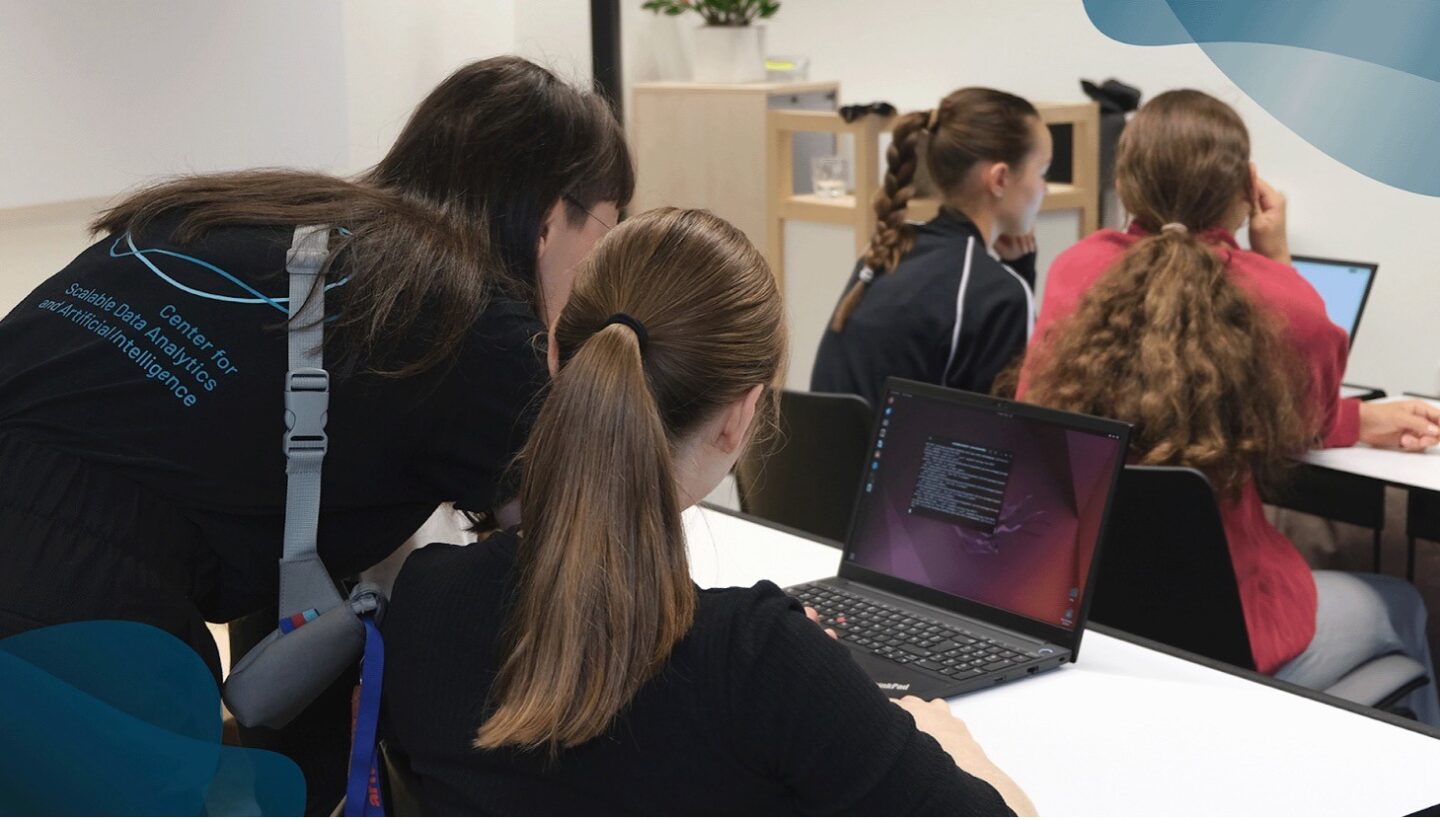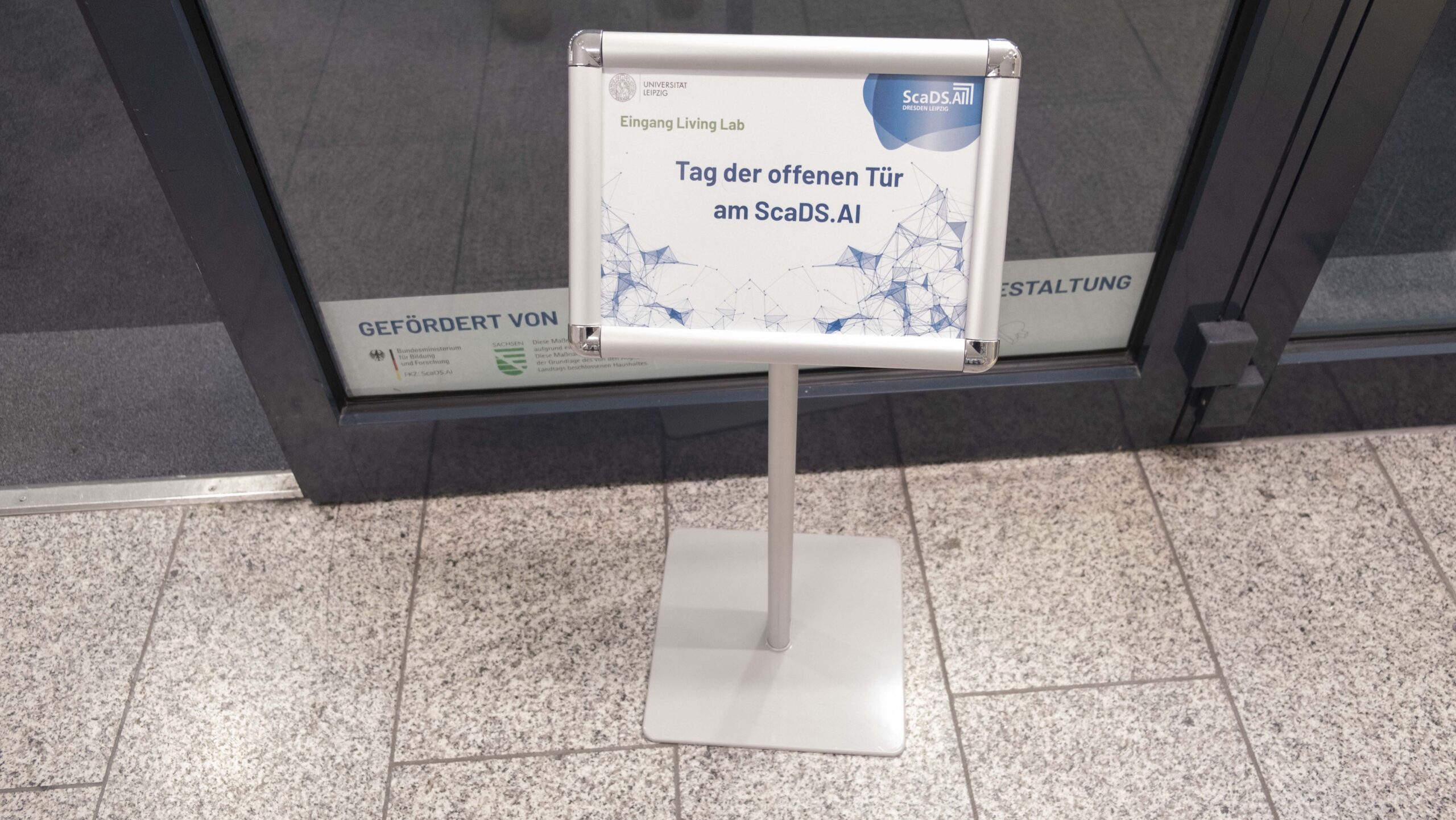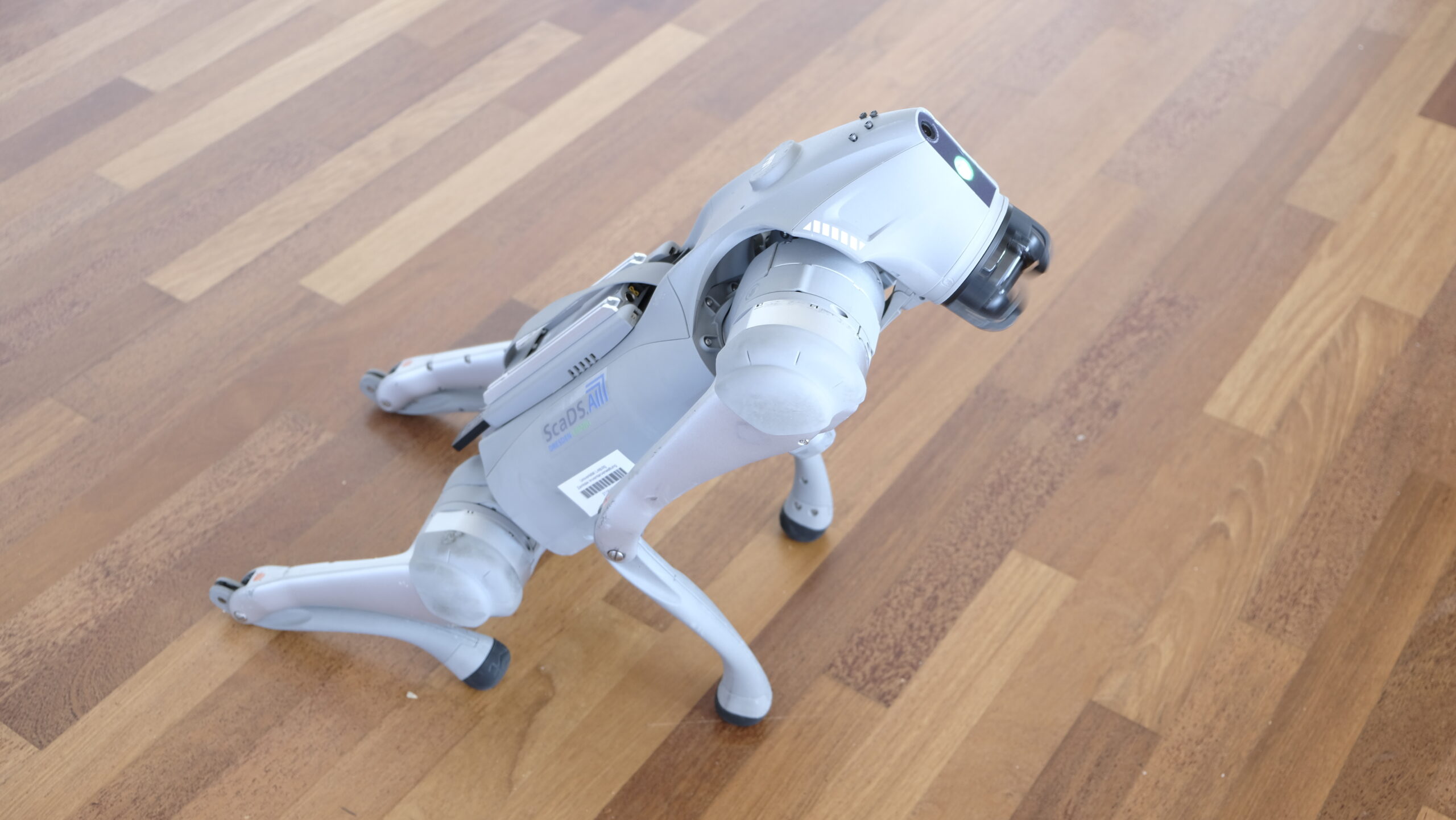
January 17, 2025
Preparing Pupils for their Komplexe Leistung: An innovative Workshop initiative

At ScaDS.AI Dresden/Leipzig, we are committed to shaping the education of tomorrow. Through a series of innovative projects, we aim to foster AI literacy in schools across Saxony. Collaborating with research groups, partners, and experts from diverse disciplines, we have developed an exciting and hands-on program. Our Living Lab at ScaDS.AI Dresden/Leipzig contributes its professional expertise, state-of-the-art facilities, and demonstrators to make theoretical knowledge tangible and engaging. This blog post highlights an initiative launched in 2024 by Dr. Claudia Loitsch, head of the NAIC junior research group. In collaboration with Vanessa Kuhfs (ScaDS.AI Leipzig) and Erik Marx (Chair of Didactics of Computer Science at TU Dresden), tailored AI workshops were designed for pupils. These workshops are seamlessly integrated into the school curriculum, particularly supporting pupils preparing for the challenging Komplexe Leistung (Complex Performance Task).
The Komplexe Leistung allows pupils to delve deeply into scientific, methodological, or creative problems while developing critical skills such as creativity, systems thinking, teamwork, and presentation. By integrating AI literacy into this framework, our workshops enable pupils to understand and critically evaluate the potential of digital tools and generative AI systems, including text-based models like ChatGPT. Building on the foundational principles of AI and machine learning conveyed by Erik’s team and the practical application sessions led by Claudia and Vanessa, pupils learn to use these technologies thoughtfully and responsibly. This approach ensures that participants can effectively incorporate AI-driven methods into their research, writing, and presentation tasks within the Komplexe Leistung, ultimately enhancing both their academic experience and their preparedness for future challenges.
With the growing importance of digital tools and generative AI systems in education, there is an urgent need to equip young learners with the competencies required to use these technologies thoughtfully, creatively, and responsibly. Our workshops directly address this need, offering practical insights into key AI topics.
Our workshops cover a broad spectrum of relevant content, from the fundamentals of machine learning and the technologies behind chatbots and image generation systems to the critical examination of the latest AI research. A special focus is placed on understanding the origins of data used in AI systems and the specific characteristics of algorithms. The goal is to provide pupils with a comprehensive understanding of the opportunities and limitations of modern AI applications. In the following sections, we take a closer look at how these foundational concepts — introduced by Erik’s team — are practically applied, and how Claudia and Vanessa’s sessions guide pupils in effectively using AI tools, such as chatbots, to enhance their own research projects.
Hands-On Exploration of Machine Learning: From Concepts to Applications
This part of the workshop was developed by the EduInf team, which designs workshop concepts and materials focused on teaching technological foundations of machine learning. In this segment, students are introduced to fundamental concepts of machine learning to help them understand phenomena behind machine learning-based technologies like ChatGPT. This enables them to use such technologies consciously and responsibly.
At the heart of this segment is the use of the browser-based web application Teachable Machine. This tool allows students to train simple machine learning models through an intuitive interface, making complex concepts more accessible. The session begins with a brief introductory task to familiarize students with the tool. Following this, the workshop transitions into a hands-on project. The objective is to train a machine learning model capable of distinguishing between different types and variations of sculptures. To achieve this, pupils collect a dataset and critically assess its suitability for the task at hand.
This process introduces key concepts of data acquisition and data quality which the students reflect on, emphasizing how data is gathered and why it must be evaluated for its relevance and reliability. Once the model is trained, pupils calculate various metrics to assess its performance. This step not only highlights the importance of model evaluation — a critical aspect from a machine learning development perspective — but also introduces the concept of uncertainty in machine learning systems, a vital consideration also for users.
In the final phase, pupils integrate their trained model into a custom-developed web application. This provides a comprehensive overview of the different stages involved in the development and application of machine learning systems. More detailed information about the workshop can be found here and here.
The knowledge gained in this segment equips pupils to better understand topics addressed in the other part of the workshop, such as phenomena associated with ChatGPT (e.g., hallucinations or the concept of the “stochastic parrot”). This foundational understanding fosters a more reflective and informed use of emerging technologies.
Beyond teaching core computing concepts, the workshops at EduInf also serve as a platform for research in computer science education. Valuable data collected during these sessions aim to enhance our understanding of how students grasp fundamental machine learning concepts, contributing to the ongoing improvement of educational methodologies in this field.
From Theory Directly into Application: Hands-on Prompting
Building on the foundational concepts introduced in the first workshop segment, the second part focuses on directly applying AI tools to pupils’ own research and writing tasks. Here, pupils learn how to craft prompts effectively and strategically, enabling them to interact with chatbots and large language models in a way that supports their academic work. They start by exploring basic principles of prompt design—such as assigning specific roles, defining tasks, and refining instructions—to guide AI-generated responses more accurately.
In a practice-oriented session, students apply what they have learned directly to the scientific texts they are developing as part of their Komplexe Leistung projects. This hands-on approach not only helps them integrate AI-based support tools into their everyday learning environment but also fosters a critical understanding of the capabilities and limitations of these technologies. To facilitate long-term use, we provide customized handouts for the respective classes and teachers, ensuring that the newly acquired skills become part of the students’ regular workflow. Throughout the workshop, students can engage in open dialogue with attending scientists, asking questions and gaining deeper insights into AI and the process of scientific inquiry. What the students take away from this workshop unit:
- The ability to critically evaluate AI applications and their output
- Practical experience in incorporating AI tools into their daily academic routine
- Knowledge of effective prompt design and constructive communication with chatbots and Large Language Models

A Look at the Numbers
In 2024, our workshops reached a total of 491 students from 10th-grade classes across several Gymnasien in Saxony. These sessions were held at TU Dresden’s EduINF, a hub where various other workshops also take place. The high participation numbers highlight the growing interest in integrating advanced technology into education and emphasize the importance of equipping pupils with essential AI skills for their academic and professional futures.
Reflection and Outlook
In facilitated discussion rounds, pupils and teachers reflect on their perceptions and use of AI before and after the workshops, sharing personal insights and noting shifts in their understanding. These open dialogues not only reinforce the newly acquired skills but also give participants an opportunity to consider how AI might continue to influence their learning and teaching practices. One teacher summarized the impact, stating:
This feedback suggests that focusing on core competencies in AI comprehension can be more beneficial than simply providing ready-made prompts. For our research teams, these sessions offer valuable opportunities to gather data, refine teaching methodologies, and explore new research questions related to AI education in schools. By integrating findings from these reflections into ongoing studies, we contribute to the development of informed, evidence-based educational strategies. Ultimately, the workshops and the resulting discussions serve as stepping stones toward a more AI-literate generation, ready to engage thoughtfully, critically, and responsibly with the technologies of the future.






